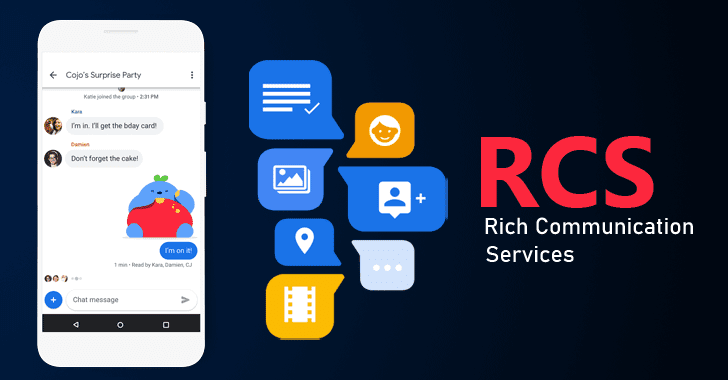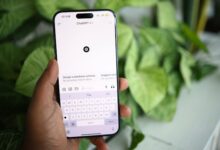Google’s RCS Messaging is Good, but there’s a dark side too

RCS messaging is the future of messaging on Android. Well, maybe not the future since you can use RCS messaging even right now. But I will not tire myself showing you how to enable RCS now when there are already tons of guides out there that can help you with that.
RCS (Rich Communication Services) messaging is Google’s answer to iMessage, Apple’s messaging service that has long made Android users feel inferior. Which explains why Apple has worked tirelessly to ensure iMessage never lands on Android. iMessage is more of an iPhone flagship feature that Android users have been jealous of for long.
But it’s okay, I have RCS, and as an Android user, I’m not complaining. This is the first-time people of my kind feel more contend about messaging on the platform.
RCS messaging takes chatting on Android via text a few notches higher. It brings more functionality like sharing of pictures and video files, showing read receipts, typing status, and also delivers more group chat features and how you interact with company accounts.
In addition to that, there is a larger 8,000-character limit, and you can make IP-based video and voice calls. Plus there is also the ability to share your location as you do on WhatsApp and other instant messaging apps. These features are, for no doubt, terrific.
With the new possibilities, that means the underlying technology has also changed in some way or another.
For example, RCS messages are sent via WIFI, unlike SMS texts which rely on a cellular network.
As you would expect, no technology is perfect. The same case applies to RCS. So, what are the drawbacks of RCS messaging? Outright, the significant disadvantage here is security. RCS messaging protocol lacks end to end encryption.
Well, and that is despite the fact that RCS messaging has been literally laying around since 2008. But that does not mean RCS is doomed. A solution will probably come in the future.
Sanaz Ahari, Google’s product management director for Android messages, said they are “fully committed to finding a solution.”
Apart from the lack of end to end encryption, Chat is also facing issues on its data security and privacy practices.
Limited compatibility is yet another factor that weighs Chat down. Android Messages (or Samsung Messages for Samsung users) is a MUST have app if you want to use RCS messages. This app is only supported by devices running Android 5.0 Lollipop and above, which, I know, should not be an issue since over 90% of the market run on at least Lollipop.
Even on newer Android versions, you will still need the other device to have RCS enabled. Failure to which, the messages will be formatted back to the good old’ SMS format.
RCS is also not compatible with iPhones. Plus, Apple has not mentioned supporting Chat as per now. But that does not mean Chat is limited to Android only – it could be supported in the future, who knows? Or, maybe I’m setting my expectations higher.
Another issue with RCS messaging is that it does not rely on a central database. This is a good thing but has its drawbacks too. That means different carriers are in charge of servers that deliver messages to users. That makes the whole RCS messaging mechanism complicated.
Just so you know, Android messages sends a query directly to the other phone, asking if its RCS capable. The phone will respond with a yes if it supports Chat, thus giving the end users all the extras that come with RCS. Although it relies on WIFI for messaging, Chat is tied to a phone number. So, that means there is no cross-device sync support, which is not the case for Apple’s iMessage or even SMS texting before Chat.
So, is RCS worth the hype? That depends. If you’re an enthusiast like me, you must try RCS messaging. But if the drawbacks are a big deal, especially on the lack of end to end encryption, you better stay with instant chat apps like WhatsApp, Instagram, Messenger, and other similar services for now.
As noted before, RCS messaging will likely include end to end encryption capability in the future. Plus, this is the standard and the future of messaging on Android(pardon me for using future).
On its part, Google has already started rolling out the service by default in some parts of the world like the US without waiting for carriers. In Kenya, RCS messaging works fine, I have not run into problems using it.
Follow us on Telegram, Twitter, Facebook or subscribe to our weekly newsletter to ensure you don’t miss out on any future updates.



